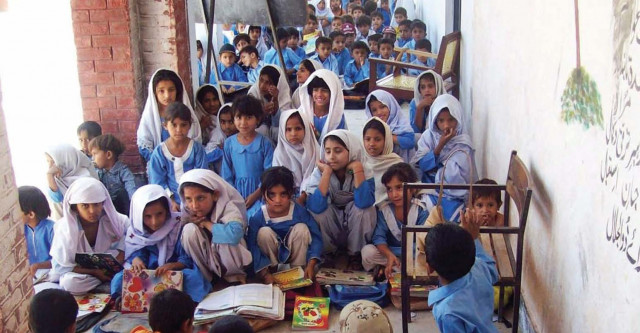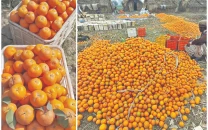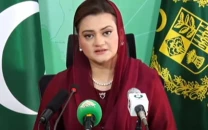Girls in schools: ‘Parents send kids to work when schooling is useless’
Consultation on education for girls urges more investment in public education.

The government has allocated Rs2 billion for providing education to girls, said Raja Muhammad Anwar on Wednesday while addressing a provincial consultation on the challenges in providing primary education to girls in the Punjab.
Punjab Education Foundation (PEF) chairman Raja Muhammad Anwar said almost 70 per cent of the schools established by the PEF were in southern Punjab. He placed the blame for the poor state of education on negligence towards imparting quality primary education. “We have been investing a lot in higher education but do we care to invest as much, if not more, in public primary and elementary education,” he said.
Anwar said the state was responsible for providing education to children, but the current situation demanded that the private sector along with NGOs assist the government in this task. He added that all 40,000 teachers, appointed recently to primary schools, were recruited on merit. He said appointment of 32,000 more teachers were pending for teaching science, mathematics and computer science.
Organised by Strengthening Participatory Organisation (SPO), an NGO which focuses on socio-economic and governance issues. The consultation was attended by various stakeholders and members of the public education system including education officers from various districts.
Dr Amjad Saqib, executive director of Akhuwat, an NGO working for the socially and economically marginalised segments of the society, said poverty and education were interlinked. “Poverty contributes to deprivation of education in our society, which in turn contributes to poverty,” he said.
Dr Saqib said interventions by the private sector will help strengthen primary education especially at the district level. “Projects should be introduced at district level and structured so as to promote a sense of ownership amongst locals,” he added.
Shamshad Qureishi, a development consultant, said there was a need to focus on financial management systems in the education sector. “Funds are available but the system through which they are allocated needs to be visited,” he said. He urged the need to create greater awareness in families regarding the importance of educating girls from early childhood.
Shajr Development Association president Chaudhry Tariq Majeed said primary schools were in a sorry state. He shared findings of a survey conducted by his organisation in 103 primary schools for girls in Bahawalpur. While schools lacked drinking water and toilets, the survey also revealed that often teachers were found neglecting their duties.
“Our survey teams found teachers sleeping on charpoys in school courtyards,” Majeed said adding that students were deployed as lookouts for inspection teams.
Majeed blamed low quality of education as a prime reason for the decline in enrollment of primary schools especially for young girls. He added that majority of the students in these schools came from low income backgrounds. “When parents find that sending children to these schools is useless, they start sending them out to seek employment,” he said.
SPO regional director Salman Abid said the government should prioritise provision of education for girls while focusing its energies at the district level. He emphasised the need to reform the education policy to incorporate schools for girls on an urgent basis.
MPA Shameela Aslam said the facilities for education and health were reflective of the state’s priorities. She said the Punjab government had invested Rs54 billion in the education sector. Defending the Danish School project, she said the project was implemented to counter the ‘madrassah culture’ in the province.
Aslam proposed work towards a uniform educational structure throughout the country, adding, “the fact that children are taught different syllabi is of great concern.”
Published in The Express Tribune, December 29th, 2011.



















COMMENTS
Comments are moderated and generally will be posted if they are on-topic and not abusive.
For more information, please see our Comments FAQ